KAKENHI & JSPS
I am in contact with Prof. Takayoshi Kusago from 2008. We met for the first time in Lima in 2009 and discussed about possible collaboration.
In 2010, we contributed one joint paper to the International Conference of the Human Development and Capability Association (HDCA) at the University of Jordan, Amman. This work was supported by KAKENHI (20530436). This is my first involvement with ‘KAKENHI- Grant-in-Aid for Scientific Research’. The paper is available for download – please click here.
We decided to work on empirical applications of Capability Approach and we tried for a fellowship from JSPS, Japan Society for the Promotion of Science. We have been successful in 2010. I have been awarded ‘FY 2010 JSPS Postdoctoral Fellowship for Foreign Researcher (P 10316)’ to work (with Prof. Kusago) at the Faculty of Sociology, Kansai University, Osaka. The topic of our research has been “Capability and Women’s Well-being in India and Japan”. The tenure of my research was one year: 22 November 2010 – 21 November 2011.
After joining Kansai University, we applied for KAKENHI. And we have been successful (Grant No. 2200316). With JSPS and KAKENHI we finally worked on the above-mentioned topic as well as on methodological issues in computation of (index of income in) Human Development Index and Gini coefficient.
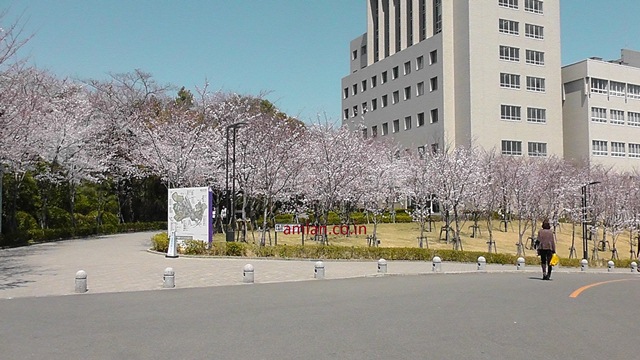
私は2008年から教授孝Kusagoと接触しているよ。我々は2009年にリマで初めて会って、可能な協力について話し合いました。 2010年に、我々は、ヨルダン、アンマン大学の人間開発と能力協会(HDCA)の国際会議に1関節の紙を寄付しました。この作品は、科研費(20530436)によってサポートされていました。これは “科学研究科研費·補助金”と私の最初の関わりです。用紙がダウンロードのために利用可能な – ここをクリックしてください。
我々は、ケイパビリティアプローチの実証的なアプリケーション上で動作することを決定し、我々は、科学の振興学術振興会、日本協会から奨学金のためにしようとしました。我々は、2010年に成功しています。私は社会学、関西大学、大阪の学部で動作するように”外国人研究のために2010年度JSPSポストドクトラルフェロー(P10316)’を(教授Kusago付き)授与されている。我々の研究テーマは、 “能力と女性のウェルビーイングインドと日本では”されています。私の研究の任期は1年だった:2010年11月22日- 2011年11月21日。
関西大学に参加した後、我々は、科研費を申請した。我々は(グラント番号2200316)成功しています。 JSPSと科研費で、私たちは最終的に(所得の指標)の人間開発指数とジニ係数の計算に上記のトピックに同様の方法論の問題に取り組んだ。
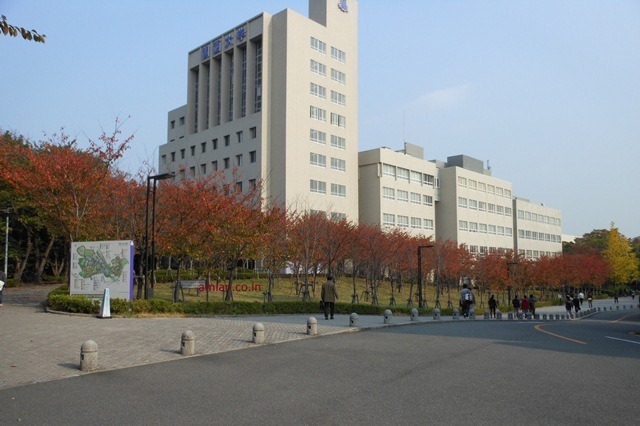
Capability and Women’s Well-being in India and Japan
Abstract: Capability approach is a framework for the evaluation of individual welfare in terms of their functionings and capabilities, which are defined as an individual’s actual and potential activities and states of being respectively. Thanks to Amartya Sen when we conceptualise welfare as standard of living or quality of life, our focus of attention shifts from merely income or consumption to a wide range of indicators, which reflect well-being in different dimensions of life. The objective of this presentation is to focus on achievement of Indian and Japanese women within the sphere of reproductive life recognising freedom of choice in matters of reproduction and its possible interaction with individual and household characteristics as well as economic, social and environmental factors.
The study applies the tools of matrix algebra, fuzzy sets theory and binary-multivariate logit regression analysis to fulfill its objectives utilising data from Indian National Family Health Survey 2006 and Japanese General Social Survey 2008. We have identified quadruplicate possibilities in regard to achievements in reproductive life, one of which strongly depicts the ideal condition or reproductive freedom. 25.11 % mothers in India and 15.48 % mothers in Japan experience this condition. The similar other condition, which is closely associated with the first too depicts an ideal condition, but somewhat weakly. 11.71 % mothers in India and 14.68 % mothers in Japan experience this situation. Of the remaining two, one surely indicates lack of reproductive freedom. 30.22 % mothers in India and 8.61 % mothers in Japan suffer in this category. The final one shows a condition with peculiarity. It is somewhat opposite to the condition of lack of freedom. 32.97 % mothers in India and 61.24 % mothers in Japan remain in this category. Peculiarity in this category warrants meaningful exploration. Multivariate analyses throw some more light on the conditions described above.
[To be detailed later.]
“能力と女性のウェルビーイングインドと日本における”
概要:機能的アプローチは、個々の実際のおよび潜在的な活動は、それぞれであることの状態として定義されている彼らのfunctioningsや能力の面で個々の福祉の評価のためのフレームワークです。我々は生命の生活や品質の基準として福祉を概念化アマルティア·センのおかげで、注目の我々の焦点は、生活のさまざまな次元でのウェルビーイングを反映している指標の広い範囲に単に所得や消費にシフトします。このプレゼンテーションの目的は、再現性と、個人や世帯の特徴や注意点など、経済的、社会的要因と環境要因との相互作用の可能性の事項の選択の自由を認識し、生殖生活の球内のインドと日本の女性の達成に焦点を当てることである。
研究では、その目標をインド国民家族の健康調査、2006年と日本の一般的な社会調査2008年からのデータを利用を達成するために行列代数、ファジィ集合の理論とバイナリ多変量ロジット回帰分析のツールを適用します。我々は、生殖生活の中での成果につきましては四重の可能性を発見した、そのうちの一つを強く理想的な状態や生殖の自由を示しています。インドでは25.11パーセントの母親と日本では15.48パーセントの母親は、この状態が発生します。密接に第一に関連付けられている類似した他の条件は、あまりにも理想的な状態を示していますが、やや弱い。インドでは11.71パーセントの母親と日本では14.68パーセントの母親は、このような状況が発生します。残りの2つのうち、一つは確実に生殖の自由の欠如を示しています。インドでは30.22パーセントの母親と日本では8.61パーセントの母親がこのカテゴリに苦しんでいます。最後の一つは特異性と条件を示しています。それは自由の欠如の状態にやや反対である。インドでは32.97パーセントの母親と日本では61.24パーセントの母親がこのカテゴリに残ります。このカテゴリの特徴は有意義な調査を保証します。多変量解析は、上記の条件にいくつかのより多くの光をスローします。
[後述する。]
I will add about our works on methodological issues in HDI and Gini coefficient later.
私は、HDIと後のジニ係数の方法論の問題に関する私たちの作品について追加されます。
The article on methodological issues in HDI is published:
Majumder, A. and T. Kusago. 2012. “A note on methodology of treating income in Human Development Index,” Indian Economic Journal, 60 (2): 57-72. (ISSN: 0019-4662)
HDIにおける方法論的問題に関する記事が公開されている
A copy of the article is available here: Amlan Paper Human Development Index-Download Link.
Errata for Article No. 4 of Indian Economic Journal, Vol. 60, No. 2, pp. 57-72, 2012.
A copy of the errata is available here: Errata-Article No. 4 of IEJ 60(2), 2012, pp. 57-72.
In order to disseminate our research work as well as to find future partners for collaborative research, we visited Cambodia and Vietnam. Our mission began with the visit of University of Cambodia & Asia Economic Forum, Phnom Penh on 05 September 2011. They arranged a meeting to explore possibilities of collaboration with us followed by a Public Lecture addressing a big audience from student, teacher and learned communities. In the morning and afternoon of 06 September 2011, we had meetings and presentations at the Pannasastra University of Cambodia, Phnom Penh and the Royal University of Phnom Penh respectively.
In Hanoi, a meeting and a special Seminar were organised by the Vietnamese Academy of Social Sciences, Institute of Human Studies on 08 September 2011. The Academy also organised similar meeting and Seminar in Ho Chi Minh City on 15 September 2011 at the Southern Institute for Sustainable Development in association with its Centre for Gender and Family Studies. In between, 13 September 2011 has been made remarkable by the University of Social Sciences and Humanities – Vietnam National University, Ho Chi Minh City by organising a Seminar with local and international participants.
We also made presentations at the Graduate School of International Development, Nagoya University on 20 October 2011 and at the Third Pre-Workshop of the 8th International Conference of the Graduate School of Core Ethics and Frontier Sciences: “Catastrophe and Justice”, Ritsumeikan University, Kyoto, Japan on 12 November 2011 respectively.
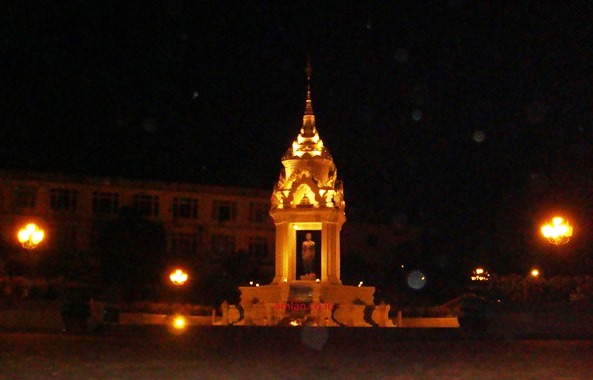
私たちの研究活動を広めるだけでなく、共同研究のために将来のパートナーを見つけるために、我々はカンボジアとベトナムを訪問しました。私たちの使命は、2011年9月5日にカンボジア·アジア経済フォーラム、プノンペン大学の訪問から始まった。彼らは学生、教師、学習コミュニティから大きな聴衆に対処する公開講演会に続いて私達とのコラボレーションの可能性を探るための会議を手配した。 2011年9月6日の午前と午後では、我々は、それぞれカンボジアのPannasastra大学、プノンペン、プノンペン王立大学で会議やプレゼンテーションがありました。
ハノイでは、会議や特別セミナーは社会科学、2011年9月8日に人権研究所のベトナムのアカデミーが主催しました。ジェンダーと家族研究のためのそのセンターの関連の持続可能な開発のための南部の研究所で2011年9月15日ホーチミン市のアカデミーも組織同様の会議やセミナー。ベトナム国立大学、組織によってホーチミン市のローカルおよび国際的な参加者とのセミナー – の間に、2011年9月13日は、人文社会科学大学で顕著になりました。
また、2011年10月20日に国際開発、名古屋大学の大学院で、コア倫理と新領域創成科学研究科第8回国際会議の第三のプレワークショップでプレゼンテーションを行いました: “災害と正義”、立命館大学、京都は、それぞれ2011年11月12日の日本。
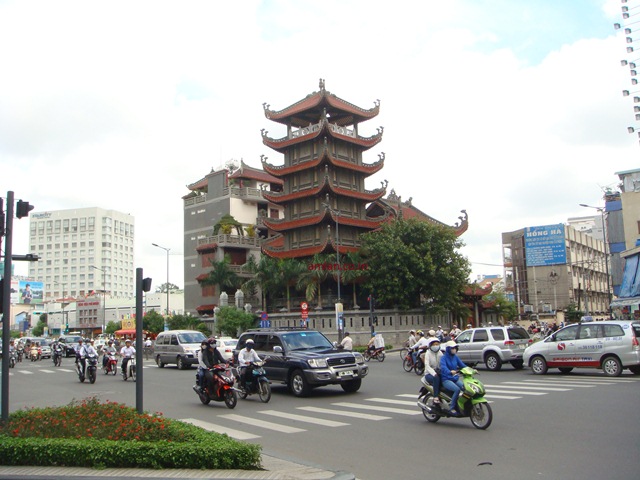
Feeling the resonance …!
I have witnessed the hardship in the Land of rising Sun after the disaster in Tohoku and the consequent trauma in the nuclear power stations.
I feel the resonance …
I remember Tohoku in silence …
No more disaster …
私は東北、原子力発電所の結果外傷における災害後のライジングサンの土地で苦難を目撃した。
私は共鳴を感じる…
私は沈黙の中で東北を覚えている…
これ以上の災害…
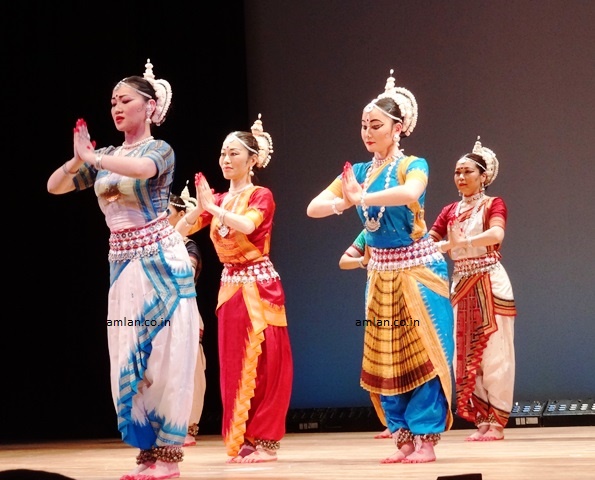
For more information please write me to: amlan@amlan.co.in.